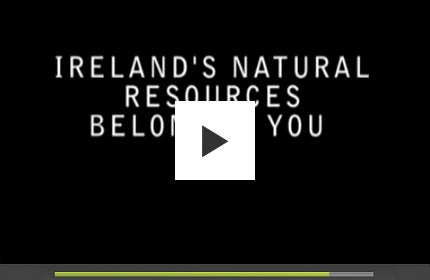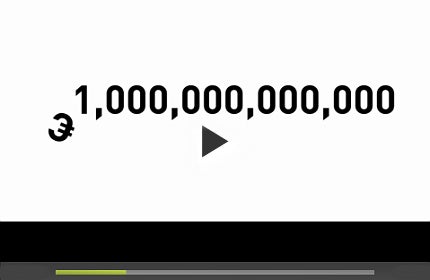
Offshore oil and gas exploration in Ireland began in 1957, and since then the industry has remained largely stagnant due to lack of commercial viability. The country has only two commercial gas fields, and until recently no oil fields, while neighbouring countries the UK and Norway have seen business thrive.
This year it’s hoped Ireland’s offshore oil and gas industry will finally ignite, after Providence Resources discovered the first commercially viable oil-flow rate at its Barryroe site. The Irish company is planning more tests early this year to find out just how viable the field is, and positive results could mean a flood of investment and a momentous boost to Ireland’s weak economy.
Analysts estimate the Barryroe field, which could be on stream by 2017, at full production could reap the government up to 500m euros ($653m) a year in revenue, equivalent to the tax increases planned next year under Ireland’s austerity programme. But is this enough? Should it actually provide Ireland with more than this? Some think so.
A new campaign group called Own Our Oil, set up by Irish celebrity financial advisor Eddie Hobbs, is warning that if Ireland does not change its excessively favourable terms for the oil and gas industry then this huge potential will be wasted, and the Irish people won’t benefit from their indigenous oil.
How well do you really know your competitors?
Access the most comprehensive Company Profiles on the market, powered by GlobalData. Save hours of research. Gain competitive edge.

Thank you!
Your download email will arrive shortly
Not ready to buy yet? Download a free sample
We are confident about the unique quality of our Company Profiles. However, we want you to make the most beneficial decision for your business, so we offer a free sample that you can download by submitting the below form
By GlobalDataWhat are the terms as they stand?
According to Own Our Oil, Ireland has the prospect for oil in a space nine times the size of the country itself, an area which could possibly hold ten billion barrels of oil and be potentially worth billions of euros. Most of which will be lost under current terms, they say.
These terms include, after changes to the 1975 government Strategy for Energy Extraction were made in 1985, that oil and gas companies own 100% of the oil and gas they recover, pay only 25% tax, or up to 40% for a large field, and no royalties, and are allowed to write off 100% of any costs. In 2008, the government did introduce a new profit resource rent tax on a graded basis, from five to 15% depending on profitability, in addition to the 25% corporate tax.
Norway, an oil rich country, on the other hand, takes 78% tax from oil and gas companies, but no royalties, and the UK takes only 30% corporation tax – two percent more than for other companies outside of oil and gas – plus a supplementary charge of 15.8% and a petroleum revenue tax of 16.6%. Both significantly more than the Ireland.
Is Ireland giving away its offshore oil and gas?
Fergus Cahill, from the Offshore Oil Operators Association, says no – and that these favourable terms are needed to stimulate interest in Ireland’s offshore potential.
"The history of exploration offshore Ireland has been one of virtually continuous disappointment and lost investment," Cahill says.
He adds that more than (approximately) €3,000m has been spent in exploration since 1975, with only two commercial gas discoveries, Kinsale, which has also found further satellite gas discoveries, and the Corrib Gas Project.
"Activity in the UK or Norway runs at 40 or 50 wells per year. To compare the Irish situation with the UK or Norway is to ignore reality," he adds.
The most recent gas licensing round in 2011 resulted in no exploration licenses being granted, but only 13 licensing options which will be held for a two year programme with a limited work programme.
Irish Minister Mr Pat Rabbitte has said: "Industry’s decisions on where to invest in exploration are principally driven by two key factors – geology and economics. Where the industry views an area as being highly prospective, it will be prepared to invest in exploration, even if the tax terms are relatively tough. Of course the opposite is true."
The Irish Government at the moment has no intention of changing its oil and gas tax policies just yet, worried that it might frighten off further investment. With offshore oil and gas finds opening up all over the world – especially in Africa and parts of Asia – this is understandable, as Ireland faces a particularly difficult challenge in holding the attention of international companies. Even Norway in its policies acknowledges the importance of providing incentives – it offers to reimburse 78% of exploration costs to companies if no oil is found, something Ireland, with its financial woes and lack of already proven reserves, probably couldn’t do.
Cautious Ireland must not miss this opportunity
There is already a buzz circulating about Ireland’s potential.
"The majors are (now looking at Ireland) judging by who we’re getting," Europa Oil & Gas chief executive Hugh Mackay said in an interview, echoing similar statements from Providence, Reuters reported in February.
According to the news agency, the Irish Government estimates that what it calls the Irish Atlantic Margin, which includes Dunquin and Spanish Point – both of which will be drilled for the first round of tests by Providence – has unproven potential oil and gas reserves of ten billion barrels of oil equivalent.
"We believe that offshore Ireland is emerging as an exploration hotspot for oil and gas companies," analysts at Oriel Securities said in a note last month, which Reuters also reported.
Now it’s all about timing – finding the right time to demand more from the oil and gas corporate companies – and getting it right when the government has obviously got it so wrong in the past.
Cahill outlines what he sees as Ireland’s offshore oil and gas industry’s immediate concerns: "The key challenge that the industry faces in Ireland is to make a number of significant commercial discoveries and bring them into production within a reasonable timeframe, thus generating substantial tax revenues, creating employment and delivering energy security."
Related content
Video feature: Shell’s hollow victory in the Niger Delta
Oil giant Shell recently won four out of five cases brought against it in court by Nigerian farmers seeking reparations for lost income due to pollution in the Niger Delta.
Video feature: Shell’s rig failure – the tip of the iceberg for Arctic drilling?
The recent grounding of Shell’s drill ship in Alaska has added fuel to fears that offshore operations in the Arctic may be too risky.




.gif)

